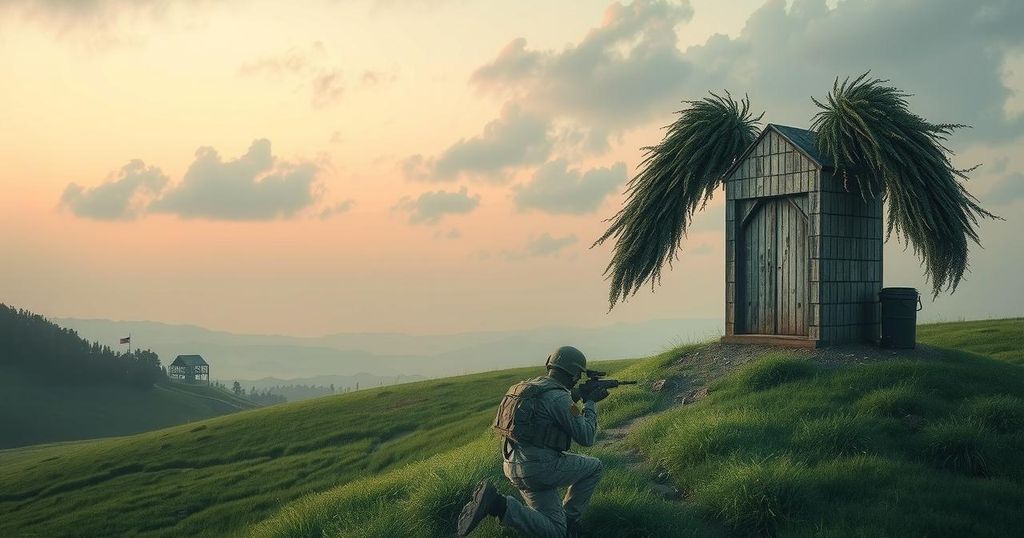Malawi President Orders Troop Withdrawal from DRC Amid Continuing Conflict

Malawi’s President Lazarus Chakwera has ordered the withdrawal of troops from eastern DRC, following a ceasefire declaration by the M23 rebel group. The rebels have recently captured Nyabibwe, raising concerns over the ceasefire’s stability and increasing regional tensions. Discussions are underway in Kinshasa for potential resolutions as humanitarian crises unfold related to the ongoing conflict.
Malawi’s President Lazarus Chakwera has directed the Malawi Defence Force to begin planning for the withdrawal of its troops from the eastern Democratic Republic of Congo (DRC). This contingent is part of a military mission organized by the Southern African Development Community (SADC) aimed at addressing the ongoing armed conflicts in the region. The decision follows the declaration of a ceasefire between the conflicting parties, which aims to facilitate peace negotiations.
The rebel group M23 has announced a ceasefire for humanitarian reasons, yet they have recently captured the town of Nyabibwe, indicating a possible breach of this ceasefire. Reports confirm that Nyabibwe, located 70 kilometers from Bukavu, fell into rebel hands amid ongoing clashes that started in the early morning, with local sources emphasizing the rebels’ control of the town center.
DR Congo’s Communications Minister Patrick Muyaya stated that the rebels violated the ceasefire and faced resistance from Congolese armed forces in the vicinity of Nyabibwe. Meanwhile, the capture of this strategic location may signify a renewed offensive aimed at Bukavu, following M23’s earlier takeover of Goma, exacerbating fears of further regional destabilization.
Internationally, tensions remain high regarding alleged Rwandan involvement with M23, accused by DR Congo of exploiting the country’s mineral wealth. While Rwanda claims its actions are defensive, the situation continues to escalate, particularly with the International Committee of the Red Cross reporting looting of its warehouse in Goma, leading to severe humanitarian implications.
In Kinshasa, discussions in parliament are focused on potential resolutions for the conflict ahead of an upcoming summit with African leaders. President Félix Tshisekedi has sought input from parliamentarians to ensure proposals reflect the populace’s concerns, thereby enhancing the government’s legitimacy in addressing the issue. Additionally, there are disputes concerning the SADC military presence, with Rwanda advocating for withdrawal while Congo seeks reinforcement, creating tensions between the two nations.
The withdrawal of Malawian troops from the DRC arises amidst a complex backdrop of regional instability fueled by armed insurgency. The SADC’s military mission, initiated to support the DRC in combatting these groups, has faced scrutiny and differing opinions on its necessity moving forward. The ongoing conflict has seen the M23 rebel group regain territories, complicating the peace negotiations essential to stabilizing the region. Furthermore, the involvement of neighboring countries, particularly Rwanda, is a critical factor in both the military situation and the broader regional relations.
In summary, President Chakwera’s order for troop withdrawal signifies Malawi’s response to the evolving military landscape in the DRC, underscored by the recent ceasefire declaration by M23. However, the continued capture of territory by the rebels raises concerns about the effectiveness of the ceasefire and the potential for further conflict. Tensions between Rwanda and the DRC, alongside humanitarian challenges highlighted by organizations like the ICRC, indicate that the path to lasting peace remains fraught with challenges.
Original Source: www.southernhighlandnews.com.au








